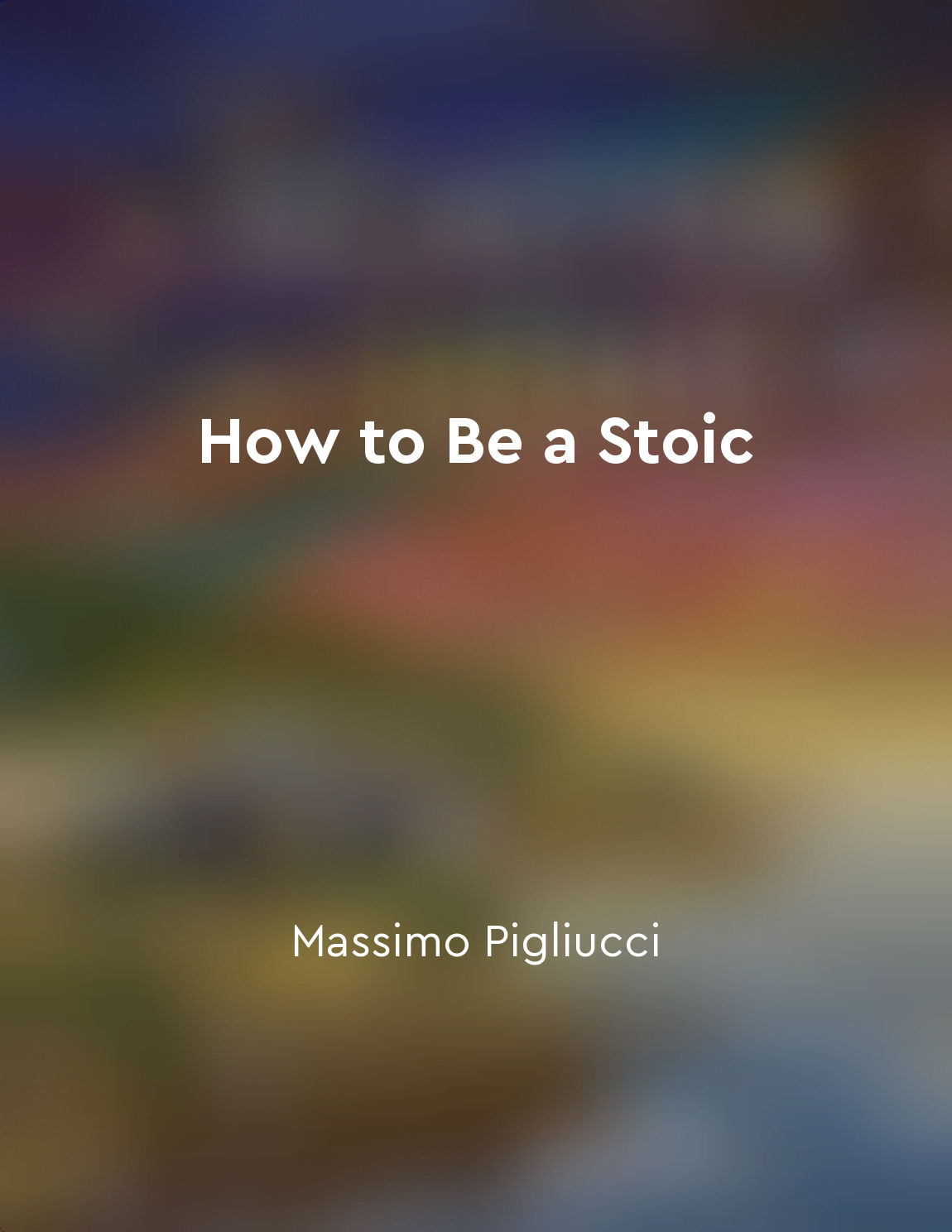Let go of attachments and desires that cause suffering from "summary" of How to Be a Stoic by Massimo Pigliucci
The Stoics believed that one of the key ways to achieve tranquility and peace of mind is to release oneself from attachments and desires that lead to suffering. This may sound easier said than done, but it is a crucial aspect of Stoic philosophy. By detaching ourselves from things that are beyond our control, we free ourselves from the turmoil that comes with trying to manipulate the external world to fit our desires. We often become attached to material possessions, relationships, or social status, believing that they will bring us happiness and fulfillment. However, the Stoics argue that these attachments only serve to enslave us, as we become dependent on external sources for our well-being. When we inevitably lose or are deprived of these things, we experience pain and suffering. According to Stoic philosophy, true freedom lies in cultivating a mindset that is indifferent to the fluctuations of fortune. By letting go of attachments and desires, we can find inner peace and contentment that is not contingent on external circumstances. This does not mean that we should become apathetic or devoid of emotion, but rather that we should cultivate a sense of inner strength and resilience that allows us to face life's challenges with equanimity. In order to practice this aspect of Stoic philosophy, it is important to reflect on our desires and attachments, and question whether they truly align with our values and principles. By developing self-awareness and mindfulness, we can begin to unravel the sources of our suffering and gradually loosen their grip on our emotions. This process may be difficult and uncomfortable at times, but the rewards of inner peace and freedom far outweigh the temporary discomfort of letting go.Similar Posts
Greek architecture showcased a harmonious blend of form and function
Greek architecture, at its peak, was a testament to the perfect marriage of form and function. The Greeks had a keen understand...
Be true to yourself
The first duty of a man is to be true to himself. What does it mean to be true to oneself? It means to hold fast to one's inner...
Stoics focus on virtue and moral character
The core principle of Stoicism revolves around the cultivation of virtue and moral character. Stoics believe that true happines...
Embracing adversity can lead to greater strength
Margaret Graver delves into the Stoic philosophy that advocates for the acceptance and even welcoming of adversity as a means t...
Stoics valued simplicity and frugality in life
The Stoics were advocates of a minimalist lifestyle, emphasizing the importance of simplicity and frugality in all aspects of l...
Stoicism encourages maintaining a sense of agency in one's life
The Stoics believed that each individual possesses the capacity for agency, the ability to exert control over their thoughts, a...
Practice selfdiscipline and moderation
Self-discipline and moderation are fundamental principles in the practice of Stoicism. These virtues are essential for maintain...
Stoicism advocated for the development of wisdom and ethical behavior
Stoicism, as a philosophical school, placed a high value on the cultivation of wisdom and ethical behavior. The Stoics believed...
Happiness comes from within
In our pursuit of happiness, we often look outward for sources of joy and contentment. We seek validation from others, chase af...
The Stoic approach to emotions involved cultivating indifference to external events
The Stoics believed that emotions were caused by judgments we make about external events. These judgments are often based on fa...

